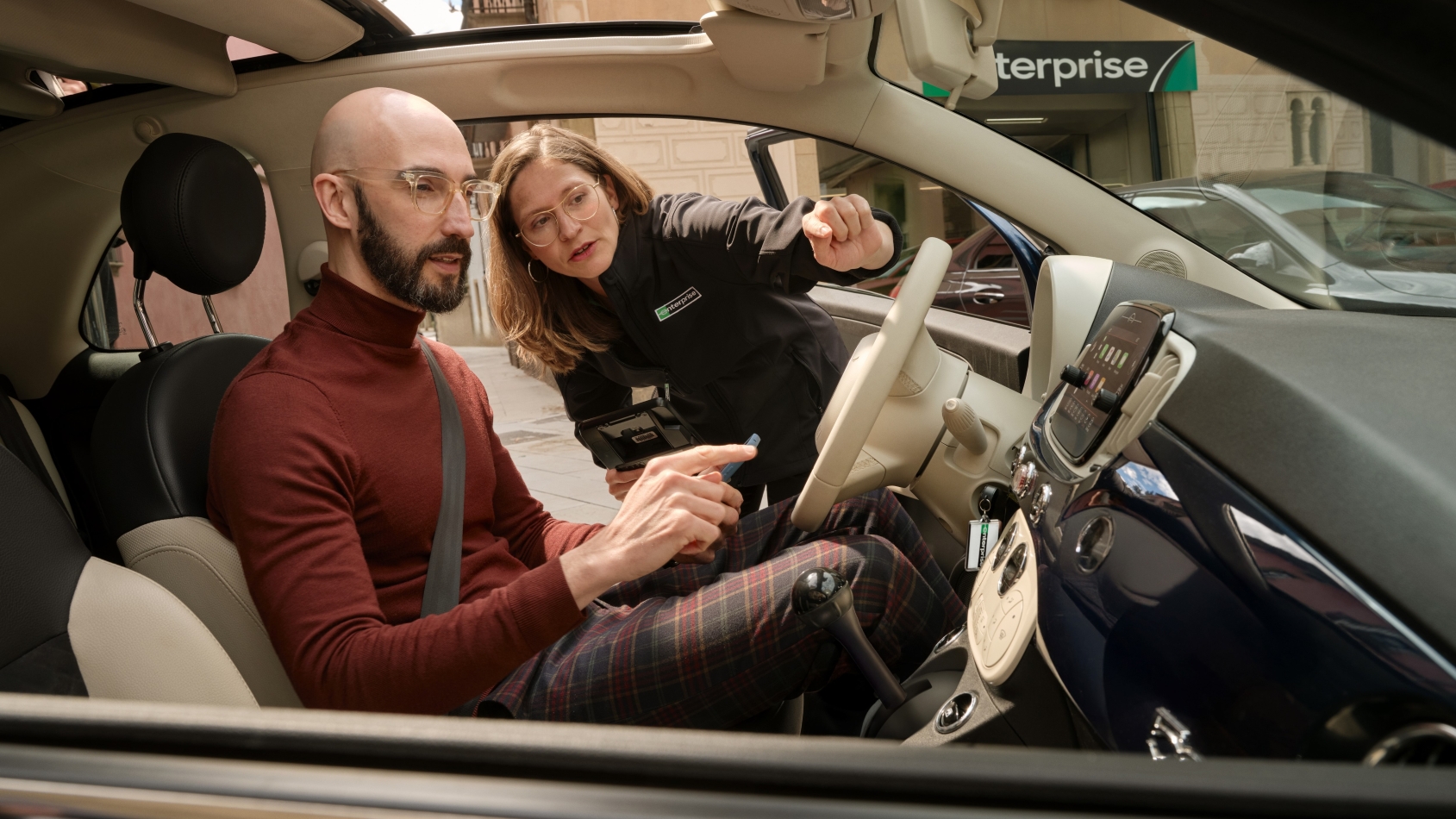Consumers looking for ‘balance’ in vehicle technology, Enterprise survey finds

Image courtesy of Enterprise Mobility.
By subscribing, you agree to receive communications from Auto Remarketing and our partners in accordance with our Privacy Policy. We may share your information with select partners and sponsors who may contact you about their products and services. You may unsubscribe at any time.
Technology has exploded in the modern automobile, with touchscreens, adaptive cruise control and all sorts of bells and whistles available.
But according to research from Enterprise Mobility, most people don’t want all of that on their vehicle.
The parent company of Enterprise Rent-A-Car and other transportation and mobility businesses released its second annual “On the Move” mobility survey, which found 54% of Americans believe new cars have too much technology.
The survey of 1,500 American adults also showed 72% of the respondents worry about repair costs with all the tech involved, and 68% said they would willingly give up the latest tech for a more affordable vehicle.
“Rather than embracing every new feature, many drivers are calling for balance,” Enterprise said in a news release, noting more than half of those surveyed said they would prefer a mix of touchscreens and physical buttons.
Still, consumers see a number of technology tools as essential, including GPS and Bluetooth, and safety is a strong consideration, with 47% saying they want advanced driver assistance features in their vehicles, including blind spot detection, automatic emergency braking and lane departure warning.
Subscribe to Auto Remarketing to stay informed and stay ahead.
By subscribing, you agree to receive communications from Auto Remarketing and our partners in accordance with our Privacy Policy. We may share your information with select partners and sponsors who may contact you about their products and services. You may unsubscribe at any time.
Overall, less than 20% of respondents said they want vehicles with high or full automation, but younger drivers, representing Generation Z and Millennials, were most likely to be among that minority seeking more automation.
The survey found Gen Z to be difficult to figure overall.
On one hand, the youngest generation of drivers increasingly used their own vehicles to get around in the past year, with 52% of them saying they drove their cars more this year than last year — the largest rise among any generation. And 66% said they use their vehicle weekly, up from 62% in the 2024 survey, while the percentage who said they use it once or just a few times a month dropped from 7% last year to 3%.
On the other, Gen Z was more likely than any generation to use mass rapid transit (14%), ride-hailing services (16%) and public bus systems (18%) once a week or more. The survey showed Gen Z’s mass transit usage has risen since the 2024 survey, with 30% using it at least monthly, up from 27%.
In addition, Gen Z was most likely to use rental cars at least monthly.
“Gen Z’s transportation habits defy easy categorization,” Enterprise Mobility executive vice president of global operations Will Withington said. “The mobility landscape is changing fast, and consumers are shaping what comes next. This survey gives us valuable insight into how we can deliver mobility solutions that are people-centric and forward thinking.”
Affordability is a major issue for every demographic, the study found, with the top three factors hindering people from buying a car during the next two years were all about money: “I can’t afford the type of car I want” (34%), “interest rates are too high” (31%) and “cars are too costly to maintain” (24%).
Enterprise’s study also looked into perceptions about electric and autonomous vehicles, finding while the number of respondents using an EV or hybrid as their primary vehicles rose 7 percentage points year-over-year, those considering acquiring an EV was up just 1% to 41%.
Enterprise said the EV market seems to be splitting into two camps: “committed enthusiasts” likely to purchase an EV, 93% of whom are as likely or more likely to consider purchasing an EV than they were 12 months ago’ and “holdouts” who are unlikely to purchase an EV as their next car, 98% of whom remain firm in that stance.
The top reasons for those thinking about buying an EV were saving money on gas (38%) and environmental concerns (30%), while the up-front costs (35%) and range anxiety (35%) were the most common causes for concerns.
For autonomous vehicles, awareness has increased, up 8 percentage points from last year’s survey, and 10% said they had ridden in an AV. Of those, 92% came away with the same or a more positive of AVs.
But overall, consumers’ comfort level with autonomous technology fell by 5 percentage points. The most common worries were technical errors (67%), preferring to control their own destiny (63%) and safety concerns (54%).
“This is not surprising for an emerging technology that is starting to come into the spotlight,” Enterprise Mobility vice president of strategy Chris Haffenreffer said. “There’s still some hesitation around AVs, but these insights reinforce the fact that experiencing technology changes everything.”
More on the survey is available here.


